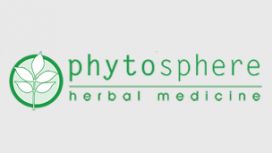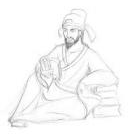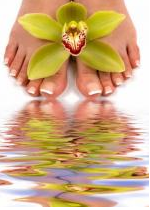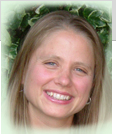
About the Business
Modern herbal medicine, or phytotherapy, can offer excellent benefits to people suffering from a wide range of health issues, from chronic fatigue syndrome to asthma, migraines to arthritis and much more. Even in the heart of the capital, it is possible to take a natural approach to your health by consulting a herbalist in London for advice.
I am an experienced medical herbalist in London, with over fifteen years experience in complementary and herbal medicine, offering treatments for patients with a wide range of health issues. As a firm advocate of Holistic Therapy, I believe that both scientific and complementary approaches can be used together to bring about a sense of well being and harmony.
By implementing a practice based on scientific and empirical evidence, I provide the best possible care to each client, with their individual needs always given the highest priority.
As a modern herbalist in London I employ a combination of traditional and scientific techniques to treat the patient holistically; not simply by treating symptoms but by treating the patient as a whole.
Whatever health concerns lead you to consult a herbalist in London, you can be assured of a completely personalised treatment. I take into account a range of factors, including your lifestyle and diet, emotional and mental attitude, and your past experiences, to treat you as an individual. I also have a herbal pharmacy that is stocked by UK herb farms that are permitted by the MHRA and licensed under the European Directive on Traditional Herbal Medicine.
As a qualified medical herbalist in London I am a member of both the National Institute of Medical Herbalists and the College of Practitioners of Phytotherapy.
Business Services

Clinical Supervision
I have a supervision practice at the University of East London where I provide herbalist training in London to undergraduate students on the BSc Herbal Medicine degree programme. My supervision and teaching in the clinic setting includes case history taking, physical examination, pathology and pathophysiology, differential diagnosis, therapuetic goals, phytochemistry and herbal prescription writing. I inbed both Latin and Greek into my teaching.

Reflexology
Reflexology is known as an 'archetypal' therapy - which means that many forms of this treatment sprung up independantly around the world over thousands of years. Ancient cultures such as the Egyptians, the Chinese, the Aborigines, widespread African cultures and the Native American Indians all had their own form of this holistic treatment. Reflexology has only be taken up recently in the West, in the last one hundred years - and its effectiveness is becoming increasingly recognised and is even available in some NHS hospitals for more seriously ill patients.

Herbal Medicine
Location & Hours

2 Neal's Yard

